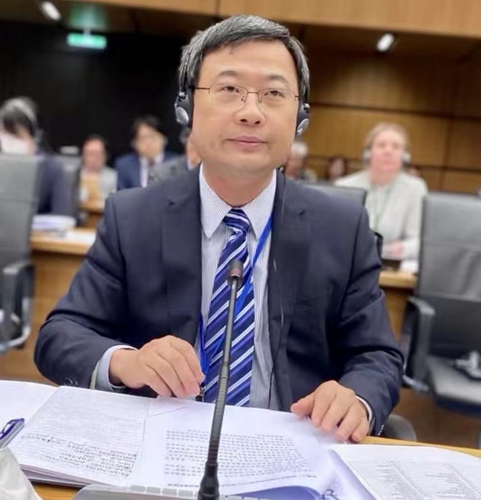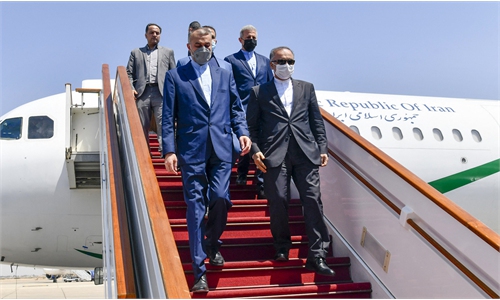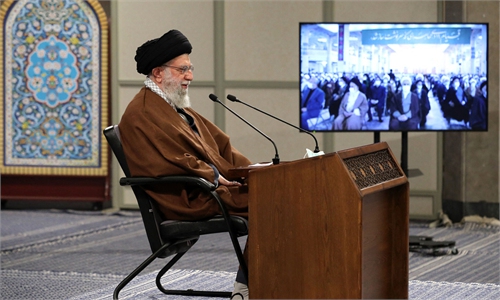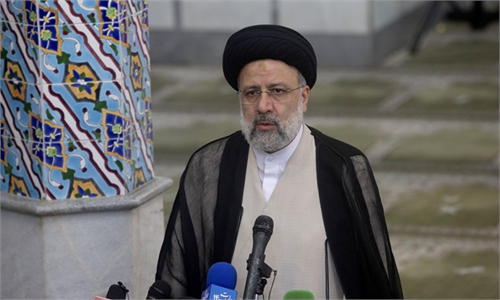US should respond to Iran's reasonable demands to promote deal, instead of exaggerating issues: Chinese envoy

Wang Chang, deputy head of China's Permanent Mission to the United Nations in Vienna. Photo: cnsphoto
A Chinese envoy to the United Nations stressed on Wednesday that the US, being the originator of the Iran nuclear crisis, should respond to Iran's reasonable demands and promote an early deal, instead of exaggerating the outstanding safeguards issues.
Noting that the Iran nuclear talks have entered the "final critical stage," Wang Chang, deputy head of China's Permanent Mission to the United Nations in Vienna, said on Wednesday at a meeting of the International Atomic Energy Agency (IAEA) Board of Governors that the US, as the originator of the Iran nuclear crisis, should respond to Iran's reasonable demands in order to promote an early deal.
Wang called on relevant parties to create necessary conditions and a favorable atmosphere for an early agreement of the Iran nuclear talks.
The Iran nuclear talks are aimed at reviving the 2015 Iran nuclear deal, formally known as the Joint Comprehensive Plan of Action (JCPOA). Iran's safeguards issues are reportedly a major sticking point in the negotiations, according to the Xinhua News Agency.
In response to a statement proposed at the IAEA board meeting by the US and some other countries on Iran's safeguards issues, Wang said putting pressure on Iran would not help resolve the outstanding issues or de-escalate the current crisis.
"It is important to note that Iran's outstanding safeguards issues point to possible nuclear activities that took place decades ago, if at all. There is neither urgency nor proliferation risk involved. Besides, the issue of the possible military dimensions of Iran's nuclear program was already concluded in 2015," he said.
The Chinese envoy urged the parties to not overstate the severity of the outstanding safeguards issues or make those issues a major obstacle to future reimplementation of the Iran nuclear deal.
All parties have demonstrated a constructive attitude and political will in the negotiation process to work toward an agreement, which has laid a good foundation for further resolving the certain remaining issues through negotiations, Wang stressed, calling on relevant parties to create necessary conditions and a favorable atmosphere for an early agreement of the Iran nuclear talks.
Iran signed the JCPOA with world powers in July 2015, agreeing to curb its nuclear program in return for the removal of Western sanctions on the country.
However, former US President Donald Trump pulled Washington out of the agreement and re-imposed unilateral sanctions on Tehran, prompting the latter to drop some of its commitments under the pact.
The long talks on the revival of the 2015 nuclear deal began in April 2021 in Vienna. On August 8, 2022, the EU put forward a "final text" of the draft decision on reviving the 2015 deal, but the negotiations have recently reached deadlock again with political differences between Tehran and Washington, Xinhua reported.
Global Times



